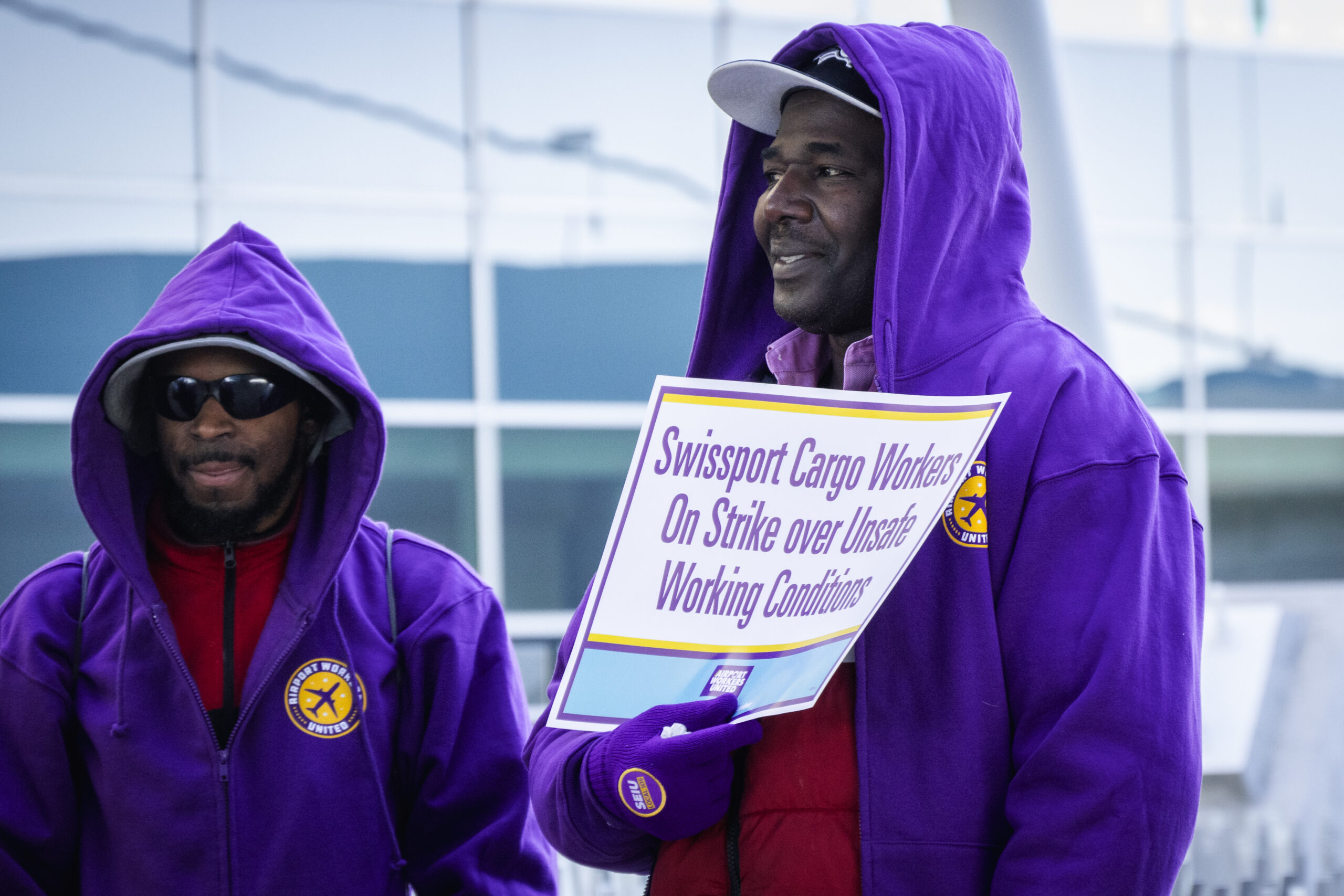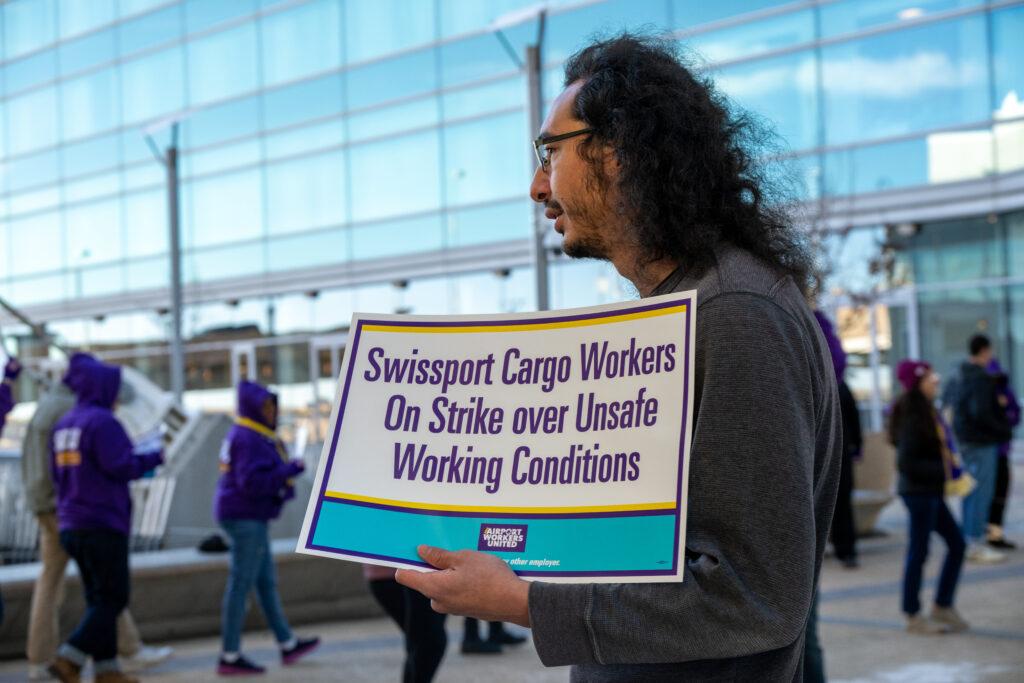
Dozens of cargo handlers at Denver International Airport walked off the job Monday over workplace safety concerns.
The group, employed by the international airline services company Swissport, marched outside the airport’s main terminal for several hours. The demonstration was the latest in a national series of strikes against the company this year, including walkouts in Chicago and New York.
Denver workers said managers had failed to respond to repeated requests for safety improvements.
“Our warehouse is just kind of a chaotic mess with broken equipment,” said Andrew Guttman, a cargo agent. “I hope that this gets Swissport to pay attention and start making corrections to fix this.”
Swissport's warehouse at DIA has operated since 2006 and processes thousands of packages a day for Amazon and other online retailers.
The company said in a statement that it follows labor safety laws. A majority of Denver workers fulfilled their scheduled hours on Monday and did not participate in the strike, according to the company.
“Swissport continues to proactively address any issues or concerns raised by our team, reinforcing our enduring commitment to cultivating a positive and supportive work environment,” the company said in a statement.
Passenger flights at the airport continued as normal Monday, according to an airport spokesman. Amazon did not return a request for comment.
Monday’s demonstration was the latest labor action to take place at the airport, which serves over 70 million passengers a year and employs roughly 40,000 people. Last year, janitors went on a one-day strike for better pay. Uber and Lyft drivers have also gone on strike over wages.
Roughly 100 cargo handlers — or about half of Swissport’s Denver workforce — participated in Monday's one-day strike, Guttman said.
Swissport cargo agents in Denver aren’t unionized. But strike organizers planned the action with help from the Service Employees International Union, or SEIU, chapter for Colorado, which represents roughly 1,200 workers at DIA.
“We’re already in the holidays and the people at Swissport see the realities of driving this economy,” said Stephanie Felix-Sowy, resident of SEIU Local 105, during a speech on Monday. “That’s why folks are saying enough is enough.”

Any U.S. worker can go on strike, but the risk of retaliation is higher if they aren’t unionized, according to SEIU.
Workers at Swissport who went on strike said they were comfortable risking retaliation to speak out about safety concerns at the company’s warehouse. Wheeled dollies that carry heavy shipping containers often have broken locks; Heaters break regularly.
One day, a loud screeching noise rang through the warehouse for several hours from its cooling equipment, Guttman said. A manager offered to give workers earplugs, but the staff refused.
“We need to communicate with our coworkers to do our job, otherwise you’re going to get hit in the face with a box,” Guttman said.
Workers also allege a fire broke out after a loading truck struck a floor heating machine that was exposed “without any protections” in place, he added. Swissport did not respond to questions about the fire.
Staff have already filed complaints with the Occupational Safety and Health Administration and circulated a petition to try to fix the problems. But significant changes haven’t been made, said Moussa Toure, a cargo agent who marched outside the airport on Monday.
“We’re standing up for everybody,” Toure said. “And for everybody to get out of danger.”









